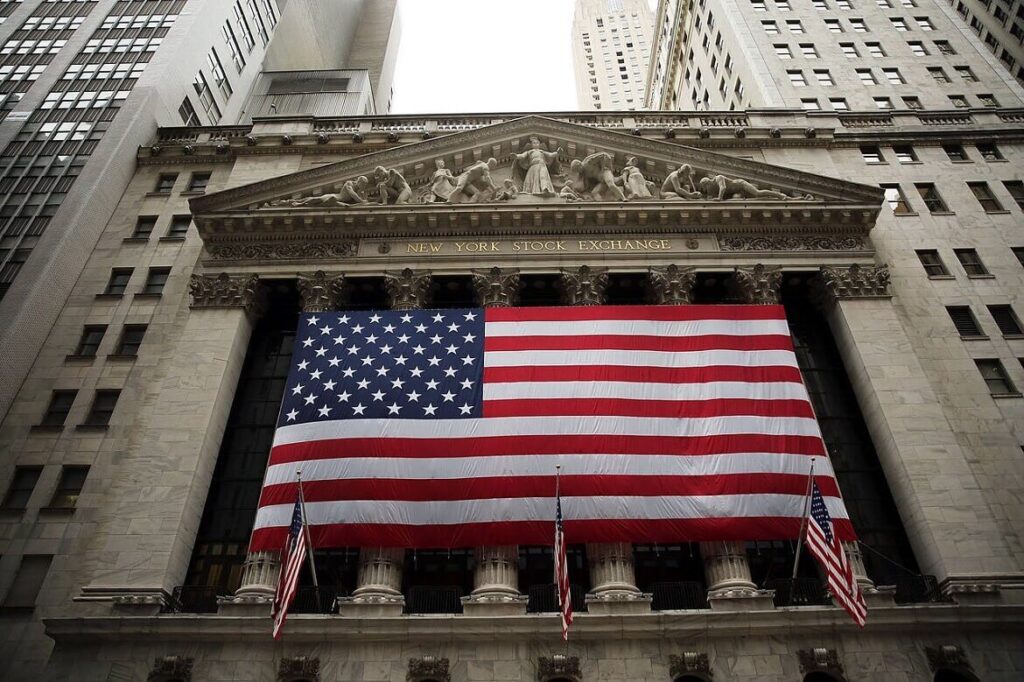By Muhammad Asif Noor
On the surface, the US economy appears to be doing quite well. The GDP is expanding rapidly, consumer spending is healthy, and unemployment rates are at all-time lows. But underneath this appearance of sound economic standing, fractures are starting to appear.

The senior US economist at Citi, Andrew Hollenhorst, believes that these fissures are signs of an impending recession that would begin in the middle of 2024. The data presents an alternative to the enticing one of a “soft landing.” The warning indicators are becoming harder to ignore, and they include the job market’s instability, ongoing inflation, and an increase in credit card delinquencies. It becomes evident by looking more closely at these signs that the US economy might be ready to witness a big decline.
The US economy welcomed the addition of over 350,000 jobs in January 2024, a number that at first look indicated strong economic health. But beneath the surface, this seemingly good progress hides flaws. The average number of hours worked per employee is declining, which is cause for concern as it suggests that firms may be cutting back on operations or preferring part-time employment over full-time roles. There has also been a discernible decline in full-time employment, which is significant since full-time work is often associated with better consumer spending and economic stability.
Certain industries, such as the restaurant business, have experienced a halt in employment, which is indicative of more general economic patterns that might point to lower consumer spending on entertainment and eating out (an early warning signaling a slowing economy). These warning signs, according to Hollenhorst, imply that the strength of the labor market may have been overstated despite notable employment increases. The unemployment rate may increase if these patterns continue, which would be a major step toward an economic collapse.
This has important ramifications for the discussion over the debt ceiling. The government receives less tax money in a weaker economy, which makes it much harder to control expenditure and debt payments. Furthermore, even in the unlikely event that the US does not truly default on its debt, the political competition over extending the debt ceiling might trigger a recession. This is due to the fact that the government borrows more money than it brings in, and hitting the debt ceiling would restrict this capacity. The economy can be impacted by this. Spending cuts by the government would have to be made, which would lower the quantity of money in circulation in the economy. Additionally, there would probably be a decline in investor confidence in the US economy, which might result in less investment and slower economic expansion.
Even more detrimental would be a debt default. It would probably lead to a serious financial catastrophe. This may cause the unemployment rate to rise, stock values to plummet sharply, and a severe recession to ensue. The length of the debt ceiling dispute and whether or not the US defaults on its debt will determine how severe the economic effects are. The best-case scenario would be a recession accompanied by a slight rise in the jobless rate. In the worst-case scenario, the United States might face a financial catastrophe comparable to the financial crisis of 2008.
A prospective recession would not only cause economic suffering in the United States, but it might have a global impact as well. Manufacturing and retail industries, which rely significantly on consumer spending, could suffer massively. A drop in demand for commodities such as automobiles and appliances may compel manufacturers to reduce output, resulting in plant closures and job losses. Similarly, merchants may see a reduction in sales, leading to shop closures, reduced staff hours, and even layoffs. Even the healthcare industry, which is normally more steady during economic downturns, may witness an increase in consumers delaying non-essential treatments owing to cost worries, affecting hospitals and healthcare providers.
The United States, being the world’s largest economy, has a tremendous impact on the worldwide market. A US recession might reduce demand for imported products, affecting economies that rely largely on exports to the US. Financial markets may undergo a global sell-off as investor confidence dwindles. This might cause a domino effect, affecting economies throughout the world.
The human cost of a recession will also be high. Job losses, salary cutbacks, and greater poverty, especially among vulnerable people, have the potential to exacerbate the wealth divide. Economic distress may also spark social unrest, riots, and even violence. Public displeasure with the government’s management of the economy may cause political turmoil, influencing forthcoming elections.
The probability of a recession poses an important question: can preventive steps be implemented to cushion the blow? While the future is unknown, the Federal Reserve’s measures to moderate inflation and the government’s budgetary policies will be crucial. Recognizing the warning signals and taking proactive efforts, there’s a chance to navigate through these economic challenges and emerge on a more stable path.
Author: Muhammad Asif Noor – Founder of the Friends of BRI Forum and Advisor to Pakistan Research Center, Hebei Normal University, China & Co-Founder, Alliance of China-Pakistan Research Centres.
(The views expressed in this article belong only to the author and do not necessarily reflect the views of World Geostrategic Insights).







